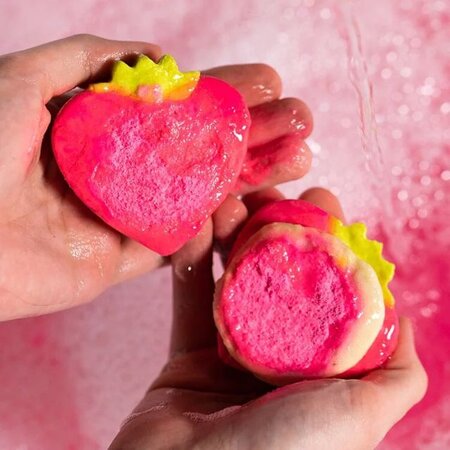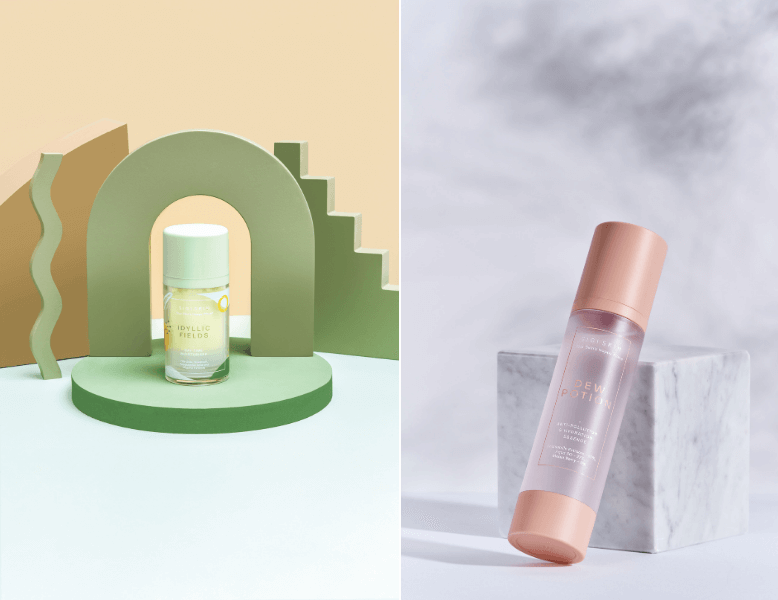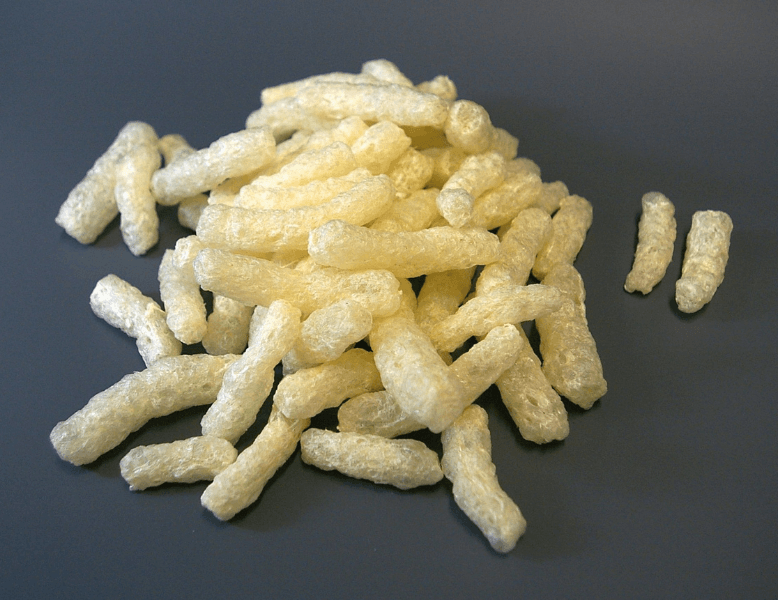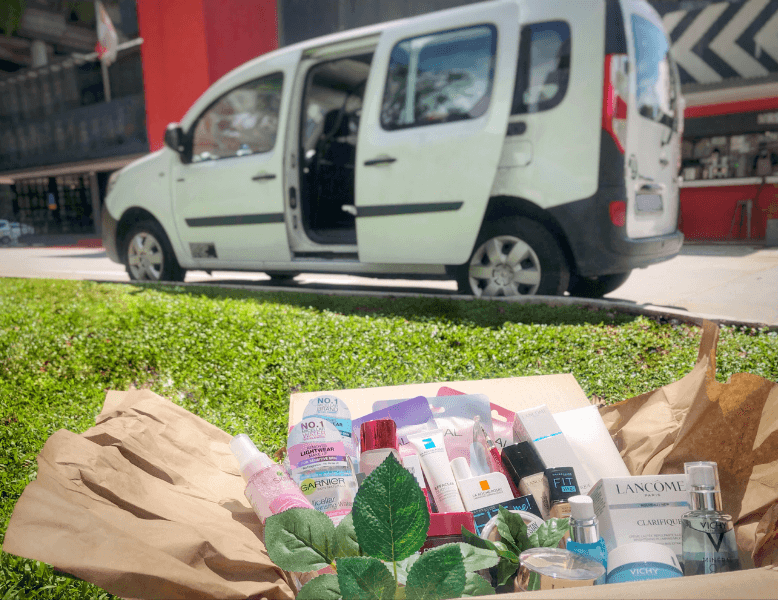This article was first published on 22 April 2021.
Beauty packaging is one of the biggest culprits of unnecessary waste. Every year, the cosmetics industry produces around 120 billion units of packaging globally. Can you imagine how many trees were cut down and carbon emissions were produced in order to reach that number? A lot, to say the least. Thankfully, beauty brands have been ramping up their eco-friendly initiatives over the years to help counter this. Here are some you need to know.
1. Aveda
Did you know that Aveda was the first beauty company to ever use 100% post-consumer recycled materials for their packaging? They're also known for pioneering a lot of community-based initiatives on sustainability. Plus, their primary manufacturing site also uses wind- and solar-powered procedures to reduce waste and water consumption.
2. Lush

Lush isn't known just for its wonderfully intoxicating bath and body care products but also for numerous initiatives to save Mother Earth. 90% of the brand's product packaging is made from recycled materials, most of which are from post-consumer waste. Lush also has Naked products that have no need for packaging at all, encouraging less post-purchase waste for consumers.
3. L'Occitane
Another beauty brand that's been big on being eco-friendly even before it became a trend or a buzzword in the industry is L'Occitane. The brand has always used paper over plastic bags and has come up with multiple ways to lessen the use of plastic on its packaging since the 90s. At present, the brand aims to convert to 100% recycled plastic for its packaging and also has all its stores offer recycling by 2025.
4. The Body Shop
The Body Shop is another beauty brand that takes its eco-friendly initiatives seriously. It releases its sustainability reports to the public annually, championing ways on how the organisation has been striving to be greener and greener each year. It also currently has a Community Fair Trade programme where they source materials from marginalised communities all over the world, offering fair prices, steady income, and better working conditions to workers. In 2019, it also launched a refilling initiative in two of its global concept stores which it aims to replicate to 500 The Body Shop stores globally by the end of 2022.
5. Rare Beauty
Can we talk about Rare Beauty without talking about its sustainability efforts? The brand is known for using 100% recyclable packaging that is made from responsibly sourced materials and features designs made with water-based ink. The protective foam it uses in its packages is compostable and is made from corn which dissolves in water.
6. DECORTÉ
Speaking of recycling beauty bottles, Japanese beauty brand DECORTÉ has launched its recycling program in Singapore. In partnership with local waste management service provider EZI (Sembcorp Industries), DECORTÉ Singapore will accept empty plastic and glass bottles from any brand at their counters and stores. In exchange, you’ll receive skincare samples and one seed paper that you can plant at home.
7. Sigi Skin

Sigi Skin Idyllic Fields Day-Time Moisturiser (SGD78/~USD59) and Dew Potion (SGD48/~USD36)
Singaporean brand Sigi Skin is another beauty brand introducing eco-friendly initiatives this year — waterless formulations. These include their Idyllic Fields Day-Time Moisturiser and Dew Potion. If you haven’t already heard of waterless beauty products, they’re formulations that do away with H2O — a standard ingredient in beauty items — to lessen overall water consumption. Freshwater is an increasingly limited resource that’s best left for drinking. It’s just an added perk that going waterless has benefits for your skincare too. “Eliminating water from formulations helps with the stability of the ingredients, making products more potent and preventing oxidation,” the brand shared. Curious to know more about it? You can read our primer here.
8. BSKIN

An example of starch-based packing peanuts. (Photo from: Wiki Media Commons)
Remember those packing peanuts that keep your products unharmed while in transit? Skincare brand BSKIN uses them, but the cornstarch-based kind, which you can just pour into the sink, run under water, and watch disappear. This is in contrast to the most common kind, polystyrene-based foam, which can be used multiple times without losing its protective capabilities but can only be recycled in packing and shipping stores. When it’s used to ship to a consumer, it almost always ends up in the trash and ends up in landfills.
9. Act + Acre
When it comes to formulating products, heat is often involved to transform ingredients for skincare use. By removing heat from the process, the brand uses less energy to create their products. Act+Acre (available in our region through Sephora) uses the Cold Pressed™ method, which uses 90 per cent less energy than conventional heat manufacturing. Cold-pressed products also have the benefits of more potent active ingredients and longer shelf life. That’s a triple win in our book!
10. L’Oreal

L'Oreal Singapore aims to lessen carbon emissions by trying electric vehicles for its local deliveries.
Shipping your beauty hauls has an environmental impact, too! Aside from using non-renewable resources like fuel, transport also emits carbon dioxide into the atmosphere. It damages the ozone layer, contributes to air pollution, and more. To address this and as part of its many eco-friendly initiatives, global beauty brand L’Oreal Singapore began trying out a new electric vehicle to deliver its products to 40 stores in the west of Singapore. The green delivery initiative aims to “reduce up to 50 per cent of carbon emissions every month”, the brand said in a press release, and is expected to expand further by next year.
What earth-loving initiatives do you want brands to do next?
Ready to make the deep-dive? Here are six ways to make your beauty routine more sustainable.
Comments, questions or feedback? Email us at [email protected].







